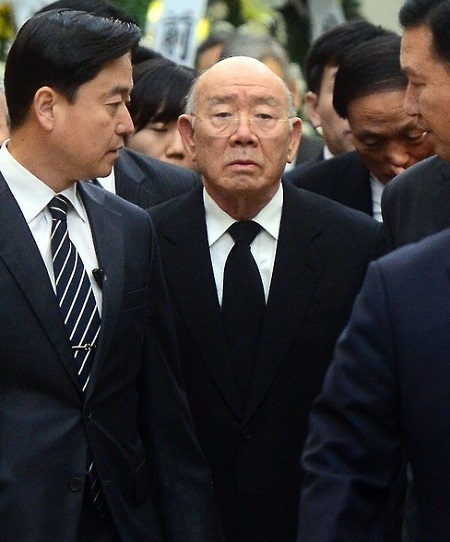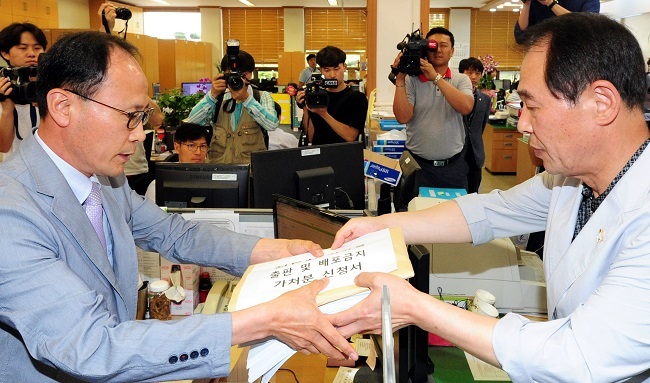Former President Chun Doo-hwan, responsible for the bloody suppression of the 1980 pro-democracy movement in Gwangju, has requested that the petition for an injunction against the publication of his memoir be reviewed in Seoul. According to the Gwangju District Court and the May 18 Memorial Foundation on Sunday, Chun has requested the case to be reviewed in Seoul, saying that the Gwagnju court may be influenced by public sentiment.
According to court records, Chun filed a motion seeking to transfer the trial to Seoul from the current venue of Gwangju on Wednesday, stating his right to a fair trial due to the “strong” local public sentiment the city carries towards the May 18 civil uprising.
 |
Former President Chun Doo-hwan (Yonhap) |
“I request to transfer the venue to a court that holds jurisdictions over my registered address in Yeonhui-dong, Seodaemun District,” the legal request filed by Chun showed.
“The public sentiment in the vicinity of the trial may render a fair and impartial trial,” added Chun’s spokesperson.
In response, the May 18 Memorial Foundation that sued Chun submitted a legal document on Friday to counter his request, stating that the trial should continue in the location in which any forthcoming compensations would be paid.
The trial began on June 12 when the May 18 Memorial Foundation and three other similar civic groups filed an injunction against Chun to halt the memoir’s production and distribution, according to local media reports.
The legal team representing the civic groups stressed that there was a collection of false claims related to the democratic uprising in the book’s chapters.
In its pages, Chun describes himself as a “sacrifice to heal and pacify the wounds (of the May 18 uprising),” and refers to the uprising as merely “Gwangju incident,” taking democracy out of the movement’s context.
The former army general-turned-president also argued that the Gwangju Uprising was a riot intervened and manipulated by the North Korean regime and denied the martial army’s massacre of civilians. The writings questioned the Supreme Court ruling in 1997 that held him liable for the tragedy.
“There was no such thing as an intentional and random massacre of civilians in Gwangju, and the supposed ‘firing command’ never existed at all,” Chun’s memoir read.
 |
(Yonhap) |
Despite his claims, the National Forensic Service released a statement last year that a bullet mark on a building is strong evidence of a series of gunshots from a helicopter.
The Moon administration recently vowed to lead a state probe to find out the truth behind the 10 days of uprising in 1980 with the political circle pledging to cooperate.
“The new government will exert further efforts in finding out the truth about that day, including who ordered the first shot from the helicopter,” said Moon during a commemorative speech on May 18.
Chun’s decision to publish a memoir became the subject of nationwide controversy, when it was first reported by media outlets in March, due to his notorious status as a former dictator. The book was officially published on April 5 with approximately 2,000 pages divided into three separate volumes.
The memoir reportedly carries personal memos and records from his presidential term, which supports his side of the story on the May 18 Democratization Movement.
By Jung Min-kyung (
mkjung@heraldcorp.com)









